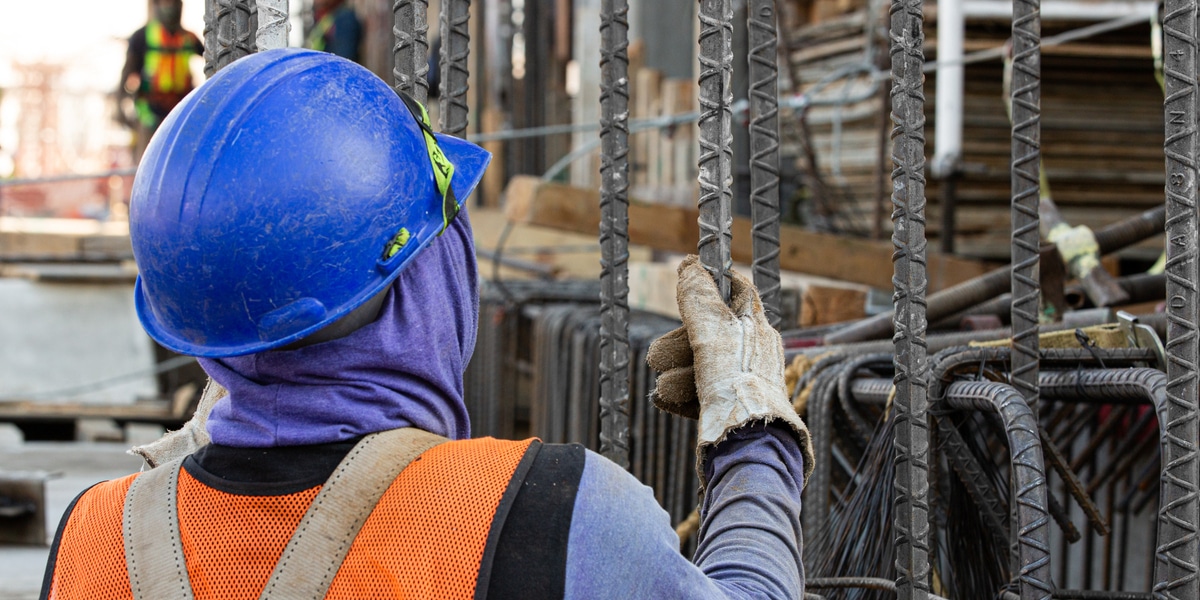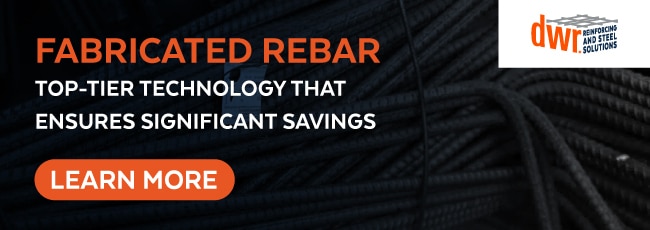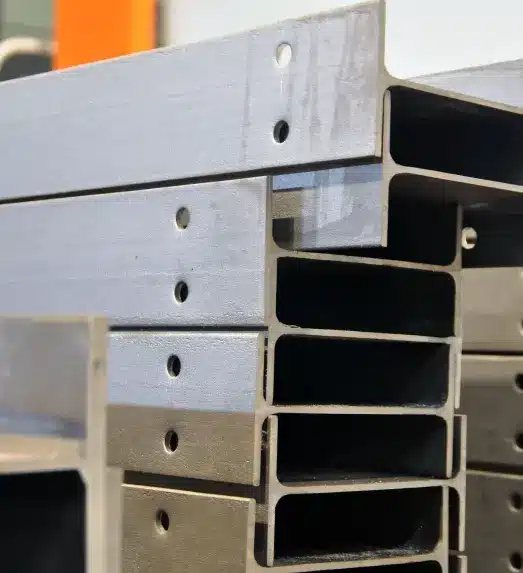The essence of steel rebar lies in its ability to provide tensile strength to concrete, creating a composite material that ensures structures can withstand dynamic forces.
This symbiotic relationship between steel rebar and concrete forms the backbone of modern building techniques, enhancing the integrity and longevity of structures.
Steel adapts to diverse projects and modern building techniques, fortifying everything from residential buildings to towering skyscrapers.
The historical evolution of rebar traces back to the early use of iron rods to reinforce masonry structures to the modern marvel of intricately designed and precisely manufactured steel rebar.
Over the years, advancements in metallurgy and manufacturing processes have led to the creation of various types of steel rebar, each tailored to specific construction needs.
We invite you to keep reading as we go through the most important details of steel rebar and its role in modern construction.
Understanding the Basics of Steel Rebar
Steel rebar is a steel rod commonly used in construction to provide tensile strength and reinforce concrete structures. It is embedded within concrete to enhance its structural integrity, preventing cracks and improving the overall durability of buildings and infrastructure.
Steel rebar is made through a process that involves melting scrap steel in a furnace to produce molten metal.
This molten metal is then cast into billets and later rolled into long, slender shapes to form the initial rebar stock. To enhance its strength and flexibility, the rebar is subjected to a series of mechanical processes, including hot rolling, quenching, and tempering.
Surface deformations, such as ribs, are often added to improve the bond between the rebar and concrete.
The grade of steel rebar signifies its tensile strength, with higher grades indicating greater strength. Common grades include Grade 40, Grade 60, Grade 75, and Grade 80, with Grade 60 being widely used for general construction.
Rebar sizes are designated by a number corresponding to the nominal diameter in eighths of an inch. For instance, the #4 rebar has a nominal diameter of 4/8 inches or half an inch. Common sizes range from #3 (3/8 inch) to #18 (2 1/4 inches).
Advantages and Applications of Steel Rebar
The advantages of steel rebar read like a wish list for any construction professional. Here are some of the most relevant advantages of steel rebar in modern construction:
1. Enhanced Structural Strength: Steel rebar provides crucial tensile strength to reinforce concrete, ensuring structures can withstand dynamic forces and loads.
2. Flexibility: Its malleability allows for easy bending and shaping, facilitating versatile applications in various construction projects.
3. Durability and Longevity: Resistant to corrosion and weathering, steel rebar contributes to the longevity and robustness of concrete structures.
4. Versatility in Construction: Available in various grades, sizes, and configurations, steel rebar is adaptable to diverse construction needs and accommodates a wide range of project requirements.
5. Improved Safety: Reinforcing concrete with steel rebar enhances the safety of structures, reducing the risk of cracks, deformations, and failures.
6. Cost-Effective Construction: Steel rebar is an economical choice in terms of material, construction, and maintenance, contributing to overall project cost savings.
7. Sustainability: The recyclability of steel rebar aligns with sustainable construction practices, reducing environmental impact and promoting eco-friendly building solutions.
8. Fire Resistance: Steel rebar exhibits high fire resistance, contributing to the safety and integrity of structures in the event of a fire.
9. Customization Options: Fabricated rebar and various coatings provide customization options, allowing tailored solutions to meet specific project requirements.
Now, to showcase the versatility of steel rebar, here are some common applications:
1. Foundations
2. Columns and Beam
3. Slabs and Floors
4. Bridges and Overpasses
5. Roads and Highways
6. Retaining Walls
7. Tunnels
8. High-Rise Buildings
9. Residential Construction
10. Water Infrastructure
DWR’s Premium Steel Rebar Solutions
While there are different types of steel rebar in the market, DWR’s Fabricated Rebar stands out by embodying superior quality and offering customization options that cater to a spectrum of construction needs.
DWR’s fabricated rebar include customizable options such as:
- Bent Rebar
- Cut Rebar
- Rebar Pins
- Stirrups
- Dowels
The precision in manufacturing ensures that each bar meets standards, contributing to the structural resilience of the projects.
DWR’s commitment to customer satisfaction shines through its products, making it a trusted partner for professionals seeking top-tier steel rebar solutions.
Benefits of DWR’s Fabricated Rebar
Choosing DWR’s Fabricated Rebar for your construction projects brings a myriad of benefits:
– Precision Manufacturing: Each piece is crafted with meticulous attention to detail, ensuring consistency and reliability.
– Customized Solutions: DWR’s fabricated rebar can be tailored to meet the unique specifications of your project, offering flexibility and versatility.
– Cost Savings: The longevity and durability of DWR’s rebar solutions contribute to cost savings over the lifespan of a structure.
– Enhanced Efficiency: The reliability of DWR’s fabricated rebar translates to more efficient construction processes, reducing delays and ensuring timely project completion
In conclusion, steel rebar is more than just another construction material. Its role in reinforcing concrete structures is unmatched, and as we have seen, the advantages extend beyond strength.
DWR’s premium steel rebar solutions add a layer of excellence to this indispensable construction element. Choose quality, choose steel rebar, and choose DWR solutions.
Contact us now and let us become your trusted partner in reinforcing steel solutions.


